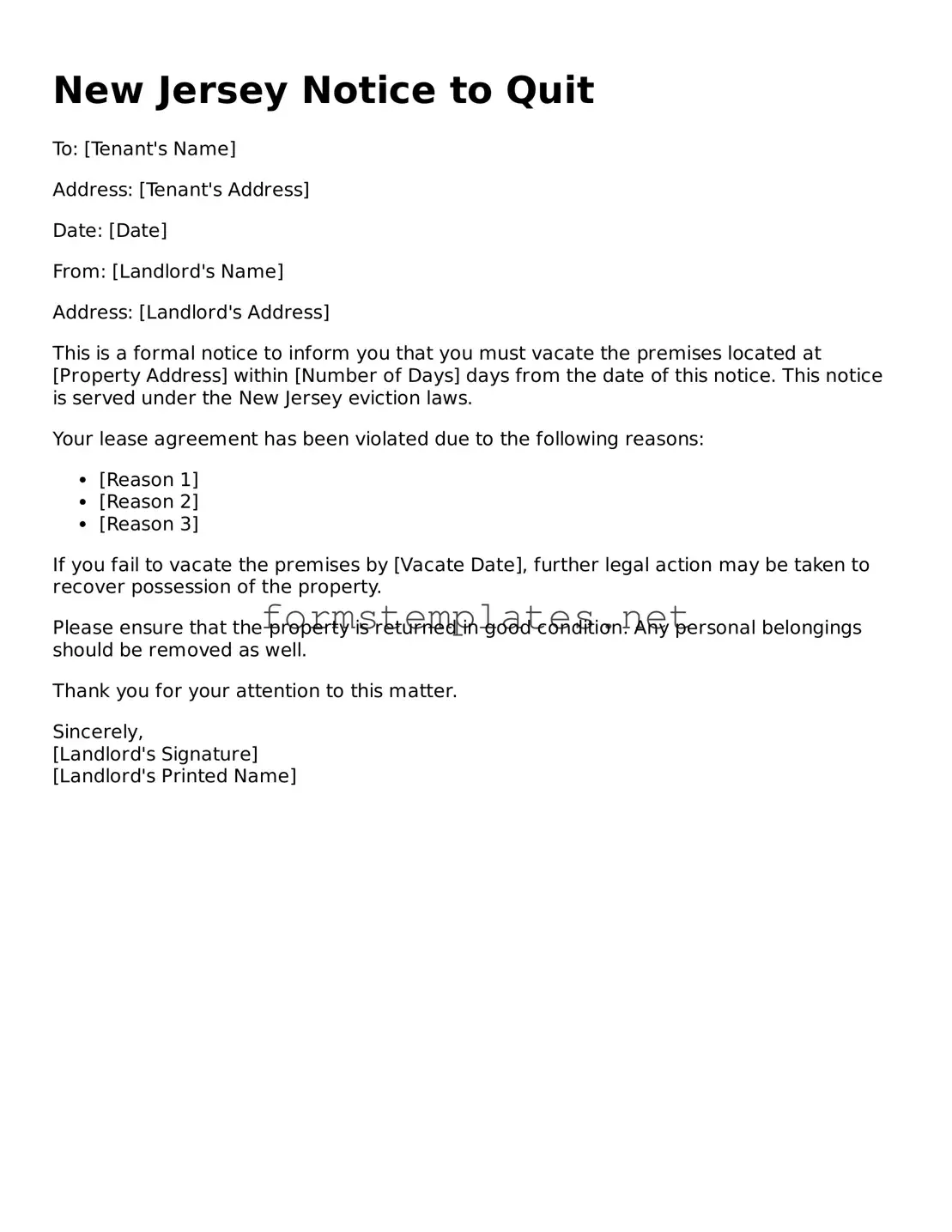Attorney-Approved New Jersey Notice to Quit Template
The New Jersey Notice to Quit form is a legal document used by landlords to inform tenants that they must vacate the rental property. This notice typically outlines the reasons for eviction and provides a specific timeframe for the tenant to leave. Understanding this form is essential for both landlords and tenants to ensure a smooth transition and to comply with state laws.
Open Editor Now

Attorney-Approved New Jersey Notice to Quit Template
Open Editor Now

Open Editor Now
or
⇓ PDF Form
Your form still needs attention
Finalize Notice to Quit online — simple edits, saving, and download.